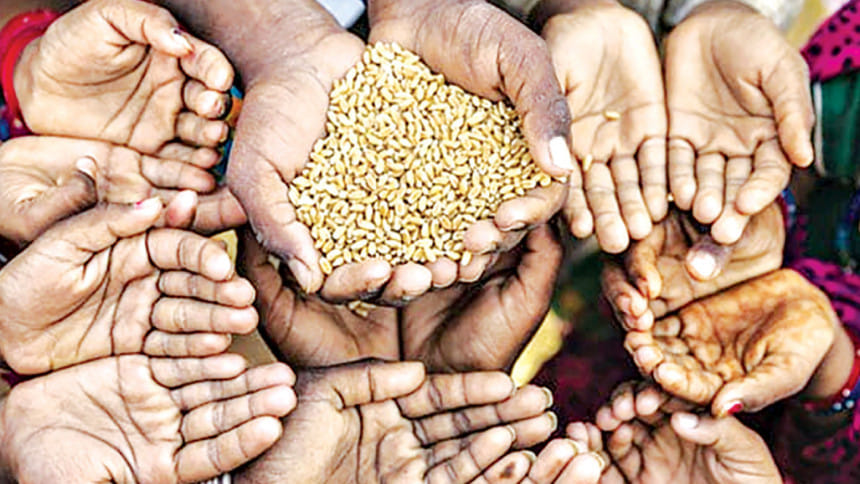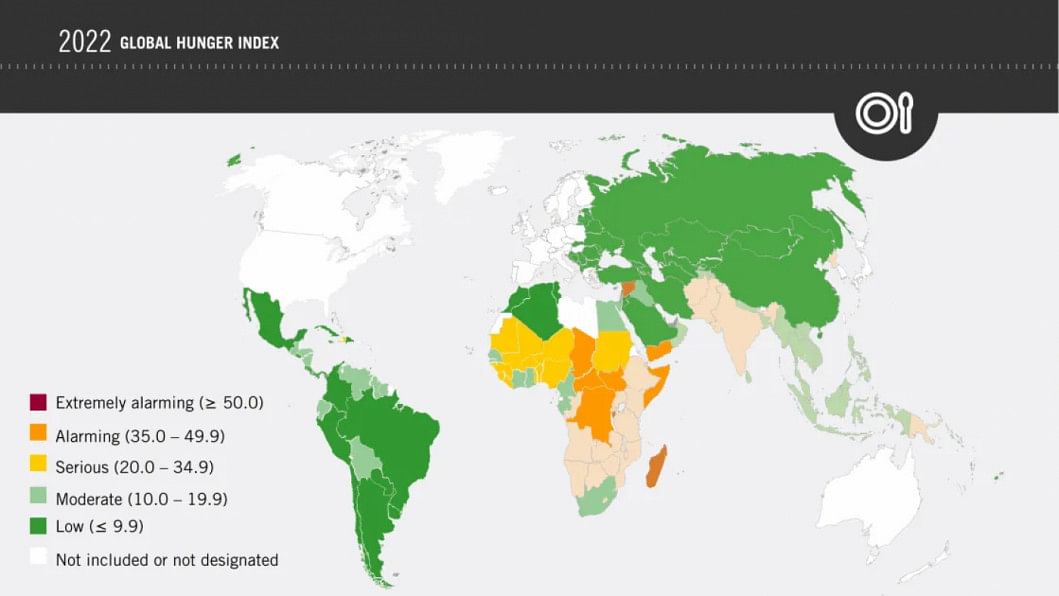Hunger Index 2022: Bangladesh’s status borderline “serious”

Bangladesh has been ranked 84th in the Global Hunger Index 2022, among 121 qualifying countries.
Its current score is 19.6 which is considered "moderate" in the GHI Severity Scale. Meanwhile, score 20 to 34.9 means "serious".
Bangladesh fared better than its South Asian neighbours --Pakistan (99th), India (107th), and Afghanistan (109th), according to the report jointly published by Irish aid agency Concern Worldwide and German organisation Welt Hunger Hilfe. However, it lagged 20 places behind crisis-torn Sri Lanka (64th). Sri Lanka's score is 13.6 which is far better than Bangladesh's 19.6.
The global hunger index is a means of monitoring whether countries are achieving hunger-related SDGs, according to World Health Organization. The index captures three dimensions of hunger: insufficient availability of food, shortfalls in the nutritional status of children and child mortality (which is, to a large extent, attributable to undernutrition).

Out of 100 points, 0 is the best score (no hunger) and 100 is the worst. In practice, neither of these extremes is reached.
GHI Severity Scale:
GHI ≥ 50: extremely alarming
35-49.9: alarming
20-34.9: serious
10-19.9: moderate
≤9.9: low
For the 2022 GHI report, data of 136 countries were assessed. Out of these, there were sufficient data to rank 121 countries.
Seventeen countries, including China, Belarus and Kuwait, shared the top rank with a GHI score of less than five, according to the report that tracks hunger and malnutrition.
Hunger is at alarming levels in five countries -- Central African Republic, Chad, Democratic Republic of the Congo, Madagascar, and Yemen. Hunger is provisionally considered alarming in four additional countries -- Burundi, Somalia, South Sudan, and Syria.
In a further 35 countries, hunger is considered serious, based on 2022 GHI scores and provisional designations.
The 2022 Global Hunger Index (GHI) brings us face to face with a grim reality. The toxic cocktail of conflict, climate change, and the Covid-19 pandemic had already left millions exposed to food price shocks and vulnerable to further crises. Now the conflict in Ukraine -- with its knock-on effects on global supplies of and prices for food, fertiliser, and fuel -- is turning a crisis into a catastrophe.

 For all latest news, follow The Daily Star's Google News channel.
For all latest news, follow The Daily Star's Google News channel. 








Comments